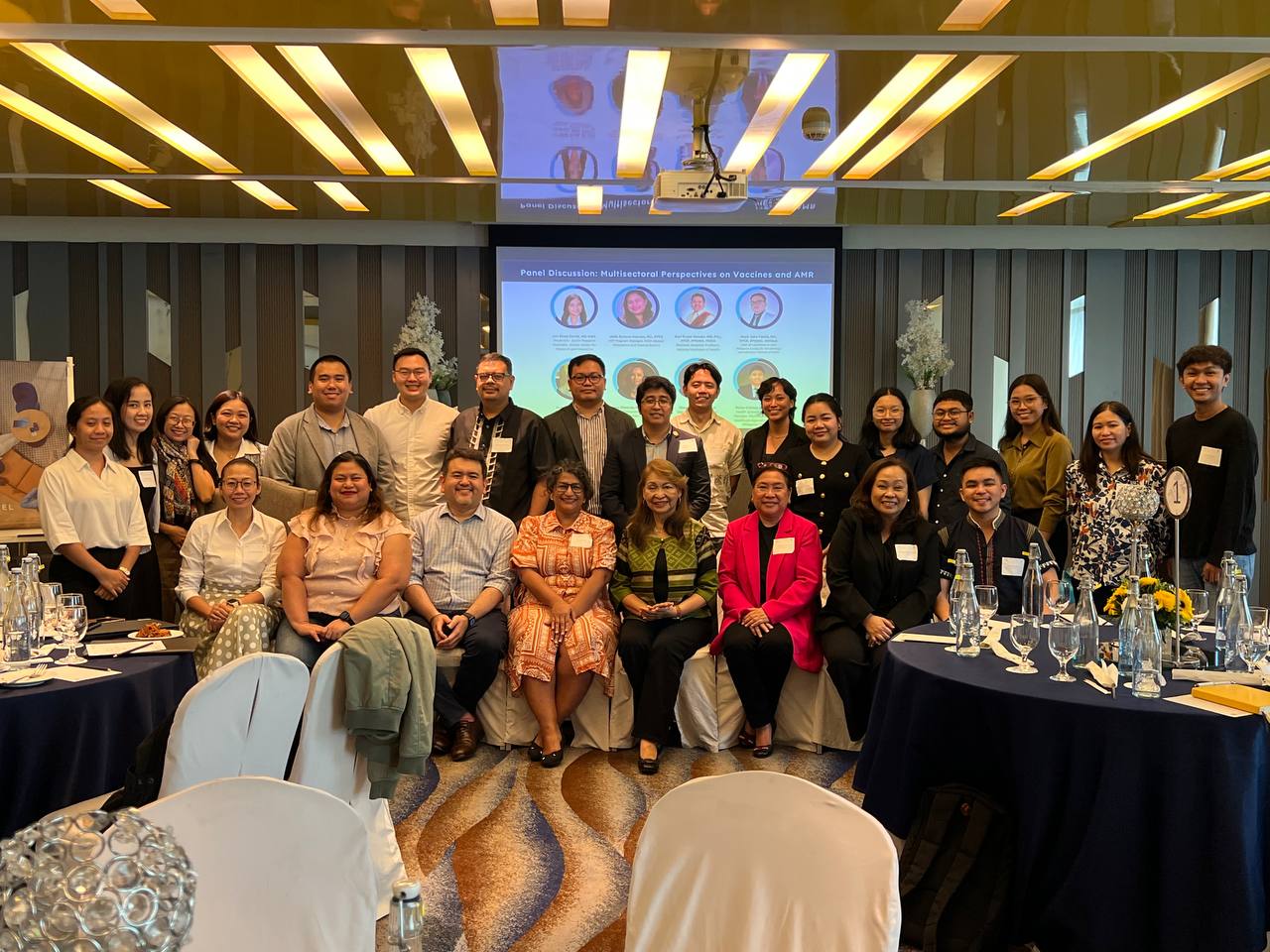
Towards a Healthier Future for all Filipinos
ACRI leads the development of the National Environmental Health Action Plan (NEHAP 2030)

Supported by the World Health Organization (WHO) and in partnership with the Philippine Inter-Agency Committee on Environmental Health (IACEH), the ASMPH Center for Research and Innovation (ACRI) has recently led the formulation and institutionalization of the National Environmental Health Action Plan 2030 or NEHAP 2030.
Hinged on the Universal Health Care Law, the 2030 Agenda for Sustainable Development and the DOH’s Health Promotion Framework Strategy, the NEHAP 2030 was designed to be the country’s roadmap and strategic guide for all levels of government (national to local) and various sectors of society towards ensuring a health-promoting environment for all Filipinos–present and future. Building upon the achievements of the previous NEHAP 2017-2022, the NEHAP 2030 outlines plans for various environmental health sectors, namely: (1) Safe Water Supply, Sanitation, and Health; (2) Air Quality and Health; (3) Solid Waste Management and Health; (4) Chemical Safety and Health; (5) Food Safety and Health; (6) Occupational Safety and Health; and (7) Climate change and health (as a cross-cutting element).
Acknowledging the intersectionality of environmental health issues, whole-of-government (WoG) and whole-of-society (WoS) approaches were adopted in the development process, wherein representatives from the government, civil society, and academia followed a deliberate and synergistic process in devising each sectoral plan (refer to the figure below). Such methodology embodied NEHAP’s commitment to inclusivity and collaborative governance.

Formulation Process of the NEHAP 2030.
The development of the NEHAP 2030 engaged more than 70 institutional and sectoral representatives in environmental health, including government agencies such as the Department of Health (DOH), Department of Environment and Natural Resources (DENR), Department of Labor and Employment (DOLE), Department of Transportation (DOTr), Department of Interior and Local Government (DILG), Department of Agriculture (DA), and non-government agencies, civil society organizations, and academic institutions. Through these in-depth stakeholders’ consultations, recurring gaps and implementation barriers in the health sector were identified, and formed the basis of the sectoral strategies developed. Synthesized below are the cross-cutting strategies for all environmental health sectors, as summarized in the NEHAP.
- To strengthen intersectoral partnerships and collaborative governance (from national to the local levels) for the promotion of environmental health
- To generate sufficient evidence on the linkages of environmental issues on public health that inform EH policy and programming.
- To advocate for improvements and investments in the natural and built environments that enable people to improve their health.
- To strengthen the capacities of decision-makers, implementers, and the general public, especially the vulnerable and marginalized, in making choices that promote the health of the environment and people
- To reorient capacities within health systems to better respond and adapt to the changing needs and challenges in environmental health.
Apart from addressing the identified gaps and implementation barriers, NEHAP 2030 also put substantial emphasis on gender equality, equity, and empowerment by advancing measures against gender violence and discrimination, targeting the disadvantaged and marginalized populations in its research endeavors, as well as spearheading individual- and community-level capacity building activities. In addition, the plan strongly advocated for the widespread adoption of nature-based solutions and the incorporation of health in existing resource conservation initiatives to create a conducive and healthy environment for Filipinos.
Led by the Department of Health, the NEHAP 2023 will be formally institutionalized on the 26th of September 2023 in commemoration of World Environmental Health Day. The development of the NEHAP 2030 was led by Dr. Gelo Apostol (Head, ACRI Environmental Health) as supported by Ms. Samantha Eala (Program Manager), Ms. Danielle Morales (Policy and Planning Lead), Ms. Noelle Cubacub, Mr. Nate Santos, and Dr. Hsu Maung.

The NEHAP 2030 Development Team (L-R), Mr. Nate Santos (RA), Ms. Danielle Morales (Lead- Policy and Planning), Dr. Gelo Apostol (Project Leader), Dr. Rosalind Vianzon (DOH-HPB Division Chief), Ms. Samantha Eala (Project Manager), Ms. Noelle Cubacub (RA), Dr. Hsu maung (RA).

Documentation of the activities conducted for the development of NEHAP 2030.
-

The Unseen Link: Vaccines and Antimicrobial Resistance in the Philippine Context
Antimicrobial resistance is already claiming lives, and the global pipeline for new antibiotics is shrinking. In August 2025, experts gathered to explore a critical question: Can vaccines become a frontline weapon against AMR? The science is clear—by preventing infections, vaccines reduce antibiotic use and slow resistance. But translating this into action means confronting data gaps, political barriers, and financing challenges. As one expert noted: "When we vaccinate, we reduce the frequency of these diseases. That means fewer antibiotics—used and misused." With no country in the Global South yet integrating vaccines systematically into AMR strategies, the Philippines has a chance to lead—if stakeholders can move from consensus to action.
-

Advancing vaccine uptake to mitigate antimicrobial resistance (AMR) in low and middle-income countries of South or South-East Asia
This project explores how strengthening vaccine uptake can serve as a key strategy to mitigate antimicrobial resistance (AMR) in the Philippines and across South and South-East Asia. By reducing the burden of vaccine-preventable diseases and the unnecessary use of antibiotics, the study aims to provide actionable recommendations for national and institutional stakeholders to better integrate vaccination initiatives into AMR control efforts, ultimately contributing to stronger, more resilient health systems.
